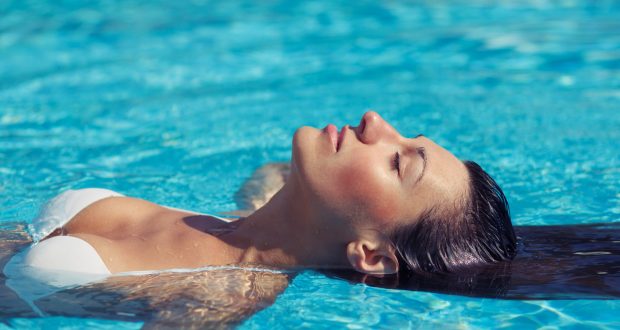By: Guest Author
Published: January 8, 2020
Written by Nikos Vasilellis- Guest Contributor
Aquatic therapy is gradually growing in popularity. It is useful in treating and controlling conditions where land-based therapies fail.
Aquatic therapy is especially effective in women over fifty years undergoing menopause. Menopause is a natural process that can take its toll on your physical wellness over time.
Besides symptoms like hot flashes, sleep disturbance, and mood swings, it makes you susceptible to other health issues. Here are some examples:
- Osteoporosis
- Cardiovascular diseases
- Excess weight
- Urinary incontinence
- Low libido
- Muscle and joint pain
What Do Studies Say About the Effects of Aquatic Therapy for Menopausal Health?
Despite facing any of these conditions, you can improve the quality of your life using aquatic therapy. Various studies have proven this statement as accurate.
In a study conducted on postmenopausal women, aquatic resistance training improved their quality of life. The subjects undertook supervised eight-week training and answered a quality of life questionnaire. Their responses indicated a significant improvement in physical function. A study by the Osteoarthritis Research Society International proved the effectiveness of aquatic therapy in managing osteoporosis. The study involved four months of intensive aquatic resistance training. The subjects were women in their postmenopausal years with mild knee osteoarthritis. They experienced an increase in walking speed and a decrease in body fat. The benefits of aquatic therapy result from the nature of the environment in which the exercises occur.
Unlike the high impact caused by exercising on dry land, water buoyancy reduces the effects of gravity and pressure applied on joints. The resistance created by the water strengthens the muscles and bones. It makes it ideal for those who have osteoporosis and arthritis. The warmth of the water increases blood flow to the joints and sore muscles, relieving pain.
Hormonal changes and inability to exercise due to osteoporosis causes excessive weight gain in pre and postmenopausal women. In aquatic therapy, the water buoyancy reduces the body’s weight. It makes it easier to work out, shed some pounds, and slow down the loss of bone density. Exercising the pelvic muscles controls urine incontinence and improves sexual function.
How Can You Utilize Aquatic Therapy for Menopausal Health?
There are various techniques you can use to attain menopausal health through aquatic therapy. Ensure that you are under the close supervision of a qualified trainer.
1) WATSU (Water Shiatsu)
WATSU is a form of aquatic therapy. It involves underwater massage, breath coordination, and movement patterns. It provides stress relief. It also improves blood circulation, range of motion, and sleep quality.
2) Ai-Chi
Ai-Chi is an ancient Japanese therapy that involves gentle movements. It is perfect for those experiencing joint pains and arthritis. It enhances muscle relaxation and blood circulation. It also facilitates the production of endorphins, which fights off bad moods.
3) Aqua Running
To reduce weight without experiencing the pressure exercising on dry land has on your joints, you can try aqua running. It keeps the heart rate at a controlled level, reducing the risk of cardiovascular disease.
Menopause is not a disease; it’s a phase of life. You can control the health conditions that accompany it by maintaining an active lifestyle using aquatic therapy. It promotes weight loss, relieves pain and stress, and will improve the quality of your life.
Author Bio:
 Nikos Vasilellis is the Founder of Nereids Aquatic Coaching and has a passion and love for aquatic activities which is combined with his care for helping others. Nereids Aquatic Coaching helps children and adults overcome their fear of water by focusing on their individual strengths and helping them enjoy the aquatic environment safely.
Nikos Vasilellis is the Founder of Nereids Aquatic Coaching and has a passion and love for aquatic activities which is combined with his care for helping others. Nereids Aquatic Coaching helps children and adults overcome their fear of water by focusing on their individual strengths and helping them enjoy the aquatic environment safely.
The views expressed herein this article, written by a guest contributor, do not necessarily represent those of the Red Hot Mamas organization. The content is for informational purposes and should not substitute the advice of your doctor.
 Red Hot Mamas In Charge of Change.
Red Hot Mamas In Charge of Change.




